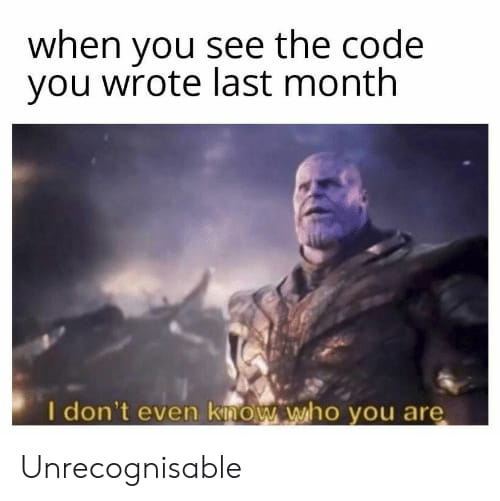Reviewing code like a junior engineer
I've met a lot of engineers who don't feel comfortable offering feedback on code they read. Most of them are junior engineers, but I've seen it with very senior engineers, too.
And this is completely natural. When you're learning on the job, code review is a very one-sided process. You push up your changes and post them for review. You get your first feedback, and it's all about patterns and best practices you didn't know! If you're like me, you feel a bit of impostor syndrome, and you learn from this feedback. When you push your next set of changes, you get more feedback and you learn something else.
Every time this happens, you also learn a pattern that was never intended:
"Code reviewers need to know more than code authors."
It can be comforting, knowing that your code is always being reviewed by an expert. But if you believe this, you're devaluing your own contributions and giving up your seat at the table.
So how do you contribute like a junior engineer?
1. Read the changes to code your team maintains
This one may seem obvious, but it's important. How can you offer feedback if you don't read the code?
You should also note that I said "read" and not "review" here. Being familiar with the changes to your code base is useful, even if you don't have comments or questions on every change.
2. Highlight code that is hard for you to understand, and explain why
Are the variable names hard to understand? Is it unclear what parameters mean or where they come from? Are the functions too big?
We read code much more often than we write it. Every time we fix a bug or onboard a new team member, we read the code to remind ourselves of what's happening under the hood. Feedback like this doesn't require a deep technical expertise, but it helps make the code easier to read when we come back to it.
And just in case you're not convinced this is important, just think about one of my favorite programming memes. "What idiot wrote this trash? `git blame` Oh. That idiot is me!"
This gets even more relevant as I get more senior. With more responsibilities and larger projects, it takes me a lot longer to revisit code that I wrote before.

(I had this meme saved, but now I don't know where it came from!)
3. Ask questions, especially about why
Software engineering is all about choices and trade offs you make between different alternatives. Asking questions about why a choice was made, or what alternatives were considered, can tell you what's most valuable to your team. Or it can highlight alternatives that are easier to test, more performant, or better in a less obvious way.
4. That's it!
You don't have to be an expert to review code that your team is writing! Asking questions helps you learn how the code works and what's important. Reading the code and highlighting areas that are hard to understand will lead to code that is more maintainable for the team as a whole.
If you're worried about asking too many questions on GitHub, or you don't feel comfortable giving your feedback in that way, I recommend scheduling some time with the author to do a pair review. You can cover a lot of topics in a half hour session, and that 1:1 time can let you ask questions that aren't relevant to the rest of the team.
Hopefully these tips will be useful to you the next time you do a code review, whether you're junior or not!